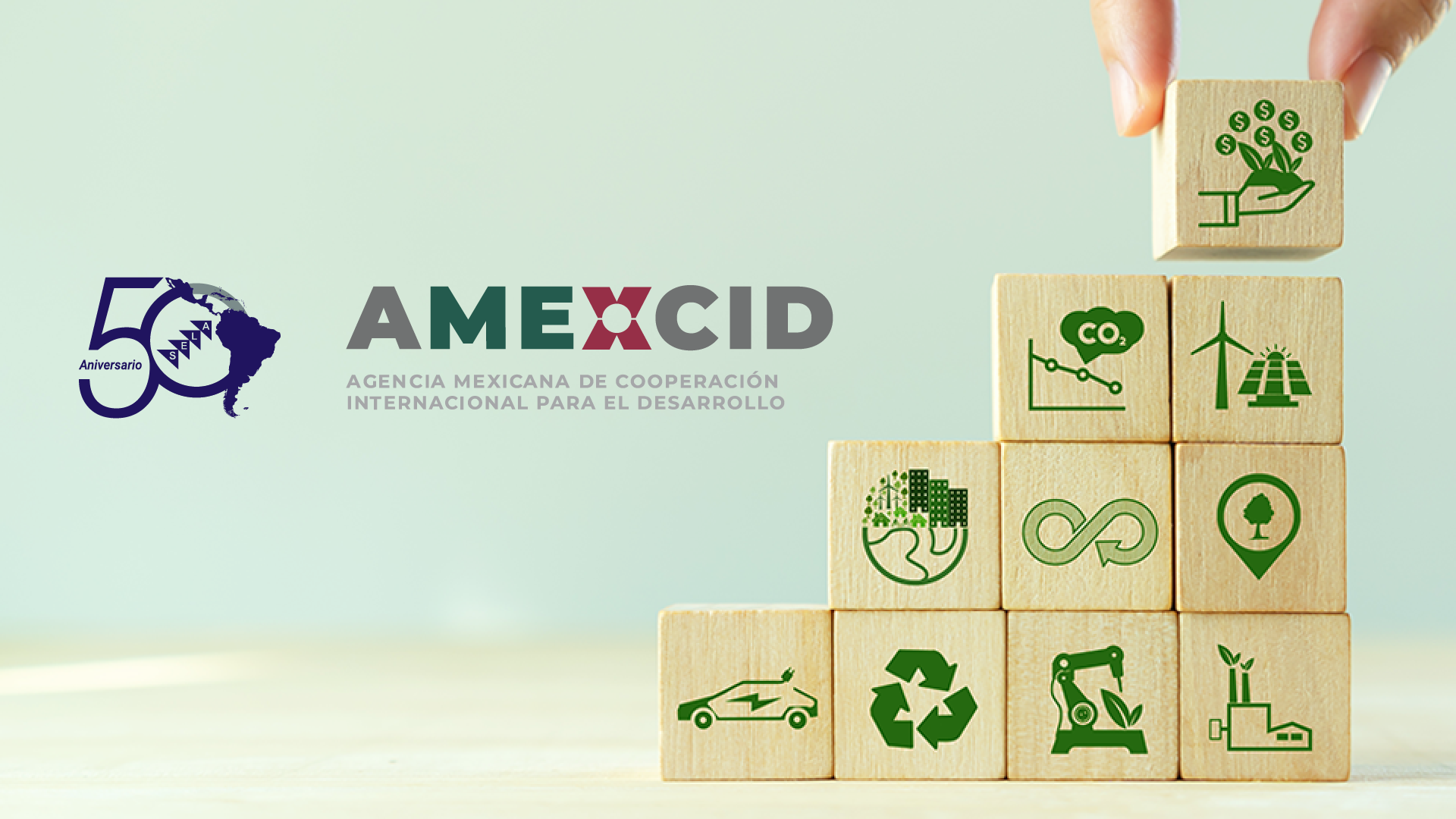
Given the importance of the “XXXIII Meeting of International Cooperation Directors for Latin America and the Caribbean,” which SELA is co-organising with the Mexican Agency for International Development Cooperation (AMEXCID), together with its rescheduling for 2026 and as a prelude to it, a webinar will be held entitled “Towards the XXXIII Meeting of International Cooperation Directors: opportunities and challenges for Latin America and the Caribbean.”
On this occasion, various cooperation officials from the Latin American and Caribbean region will provide an overview of the activities and general work of their areas in line with South-South and Triangular Cooperation (SSTC), allowing for the strengthening of capacities and procedures available in each of their countries and specialised organisations for measuring, assessing and evaluating cooperation, in line with the objectives of the 2030 Agenda for Sustainable Development and national development programmes.
Through this project, the Latin American and Caribbean Economic System (SELA) aims to reiterate the importance of the Meeting of Cooperation Directors as a platform of excellence for encouraging the exchange of ideas, experiences and best practices in areas of relevance to the cooperation and development aid agenda for more than three decades. This has also enabled SELA to identify a multitude of contacts, thereby pinpointing the agencies and regional, subregional and national counterparts responsible for international cooperation policies.
Within the framework of the mandates of the Latin American Council and the tradition of more than three decades of the Meeting of International Cooperation Directors, SELA has maintained a space for technical and political coordination to debate, exchange and consolidate proposals for intra-regional and interregional cooperation. This track record constitutes the institutional basis for addressing, in this edition, the circular economy through South-South and Triangular Cooperation (SSTC).
Member States have reaffirmed their interest in strengthening SSTC and, specifically, in linking it to the circular economy, a mandate set out by the Latin American Council (XLIX Regular Meeting, December 2023) and which guides SELA’s annual programme under the area of “Economic and Technical Cooperation.”
This effort is also aligned with the 2022-2025 Strategic Framework of the United Nations Office for South-South Cooperation (UNOSSC), which promotes SSTC policies, capacity building within the United Nations system, and the exchange of knowledge and technology for more resilient and sustainable development.
This meeting aims to raise awareness and strengthen capacities for regional and global development, as well as contribute to the debate on the promotion of instruments, mechanisms and procedures available in each country and specialised organisation for measuring, assessing and evaluating cooperation and how they align with the objectives of the 2030 Agenda for Sustainable Development and national development programmes.
Similarly, the space will be conducive to reflection and analysis to promote activities related to SSTC, in order to implement programmes with greater efficiency and flexibility, in accordance with the demands of the countries.
The project aims to:
Date: 6 November 2025
Aimed at: Cooperation directors for LAC, cooperation agencies operating in LAC, specialists and researchers in the area of South-South and Triangular Cooperation and the circular economy.
Format: Virtual via Zoom https://us06web.zoom.us/webinar/register/WN_CX8sNWJgScCgpSUPjrb8UQ
Language: Spanish
|
Virtual seminar – Towards the XXXIII Meeting of International Cooperation Directors: opportunities and challenges for Latin America and the Caribbean 6 November 2025 |
|
| 11:00 – 11:10 | Opening Remarks
Director General for Cooperation Policy Mexican Agency for International Development Cooperation (AMEXCID)
Coordinator of Social Development Latin American and Caribbean Economic System (SELA) |
| 11:10 -11:25 | Panel I
Director for International Cooperation Ministry of Foreign Affairs of the Dominican Republic |
| 11:25 -11:40 | Panel II. El Salvador’s new vision for international cooperation
Deputy Director General El Salvador Agency for International Cooperation (ESCO) |
| 11:40 -11:55 | Panel III
Head of International Negotiations and Monitoring Department Cooperation Division Chilean Agency for International Development Cooperation (AGCID) |
| 11:55 -12:10 | Panel IV. Government action to promote a circular economy: the role of the State in relation to products, processes and production
Economic Affairs Officers, United Nations Conference on Trade and Development (UNCTAD) |
| 12:10 – 12:25 | Panel V
Technical Coordinator of the Procep Project and focal point for circular economy German Technical Cooperation (GIZ) |
| 12:25 – 12:40 | Panel VI
Director, Subregional Office for Mexico, the Caribbean and Central America Ibero-American General Secretariat (SEGIB) |
| 12:40 – 12:55 | Panel VII.
To be confirmed |
| 12:55 – 13:05 | Question and answer session
|
| Closing of the Seminar | |
